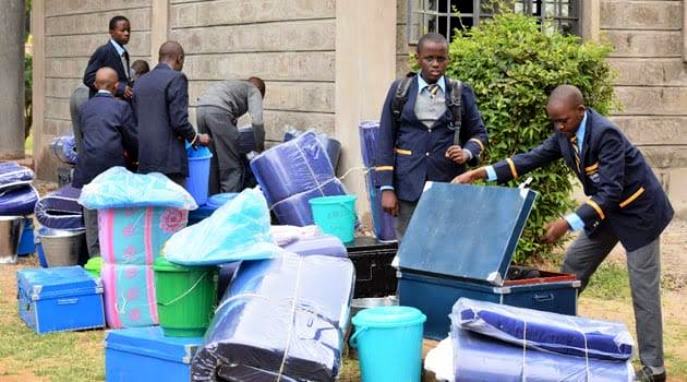Selection of Schools for KCPE Candidates Starts
Public and private primary schools have begun the process of choosing schools for the 2022 Kenya Certificate of Primary Education (KCPE) candidates today.
The Kenya National Examinations Council (KNEC) suspended the selection of schools in order to allow candidates to be registered without interruption.
This happened after teachers lodged many complaints about inefficient KNEC servers which made the process of registration difficult.
However, KNEC revealed that the process has now started today and now candidates can begin to select the secondary schools in which they would like to be placed in the coming year.
According to the examiner, registration of KCPE, Kenya Primary Schools Education Assessment (KPSEA) and Kenya Certificate of Secondary Education (KCSE) ended on the 14th of May 2022 after schools entered the required information for every learner.
During the registration of candidates, various details were required. For the KCPE and KCSE, the details required were Gender, Year of Birth, Citizenship, Candidates’ Names in the correct order, subjects registered for (including optional ones), and information on whether the learner is blind, low vision, deaf or physically challenged.
For the KPSEA schools were required to verify learners’ details and to register learners who had missed in the register and scores for Grades 3, 4 and 5 were uploaded.
In a separate article, the Kenyenya Sub-County Director of Education Mr George Ouko, said that the Competency-Based Curriculum (CBC) will succeed if all stakeholders stop criticizing it.
While speaking on the final day of the training of secondary school teachers on the launch of the CBC Junior Secondary School which is set to take place in January next year, the official termed the curriculum as “an all-rounded programme”.
Ouko implored the trainees to be good ambassadors of the curriculum at their institutions by sharing what they learned with their colleagues.
“You are now the captains of the ship and pilots who can navigate the sea and conquer the space of the CBC in your schools in our absence because we have equipped you with enough knowledge and skills,” said Mr George Ouko.
Secondary school teachers across the country have been undergoing training on the CBC in preparation for the CBC’S debut in junior secondary school in the next academic year.
The training comprised of many areas among them the structure of the CBC, Junior secondary school curriculum, the goals of the new curriculum, its essence and so much more.
Among the key tools in Information and Communication Technology (ICT) that they utilized are interactive learning response platforms such as Kahoot which they used to give responses to the trainers of trainers.
This goes hand in hand with the Teachers Service Commission’s (TSC) pledge to train more than 60,000 secondary school teachers on the CBC.
The Teachers Service Commission (TSC) planned to train more than 60,000 high school teachers on the Competency-Based Curriculum (CBC) by April 2023.
This was after the Commission trained 228,000 of their primary school counterparts.
The Kenya Institute of Curriculum Development (KICD) also revealed that designing the syllabus for grades one to ten has also been completed.
According to the Cabinet Secretary for Education Prof George Magoha, teachers who will be charged for Grade Seven of the CBC are set to undergo a ten-month training program for teachers.
This is happening amid worries over how the double intake of both Grade 7 and Eight will happen as the Pioneer Grade Seven learners will set the tone for the CBC in junior secondary school.
With Junior secondary school looming, TSC directed that thousands of primary school teachers who graduated with a degree in junior secondary option but did not attain a C plain in KCSE will not be employed.
According to the Commission, having a degree will not matter if the individual will not have attained a C+ in their KCSE. Therefore primary school teachers (P1 teachers) who do not meet this criterion will not be promoted into junior secondary.
The TSC director of staffing Antonia Lentojoni informed headteachers in Mombasa that while the qualification requirement did not auger well with teachers, it would actually improve standards.
She revealed that the reason the Commission raised the promotion criteria was to improve the quality in response to societal challenges.
“TSC raised the entry points of teaching in the country to have the right people offering quality education to our children,” she revealed.
This happen even though the Kenya National Union of Teachers (KNUT) Collins Oyuu suggested that teachers in primary schools with Degrees should be allowed to teach Grades Seven and Eight of Junior Secondary School.
According to Antonia, only teachers with the right academic qualifications will be allowed to teach in schools.
“These are the people with the ability to give quality education to our children,” she added.



Comments are closed.